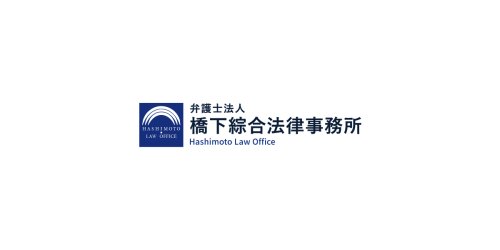Best Real Estate Due Diligence Lawyers in Japan
Share your needs with us, get contacted by law firms.
Free. Takes 2 min.
Free Guide to Hiring a Real Estate Lawyer
Or refine your search by selecting a city:
List of the best lawyers in Japan
About Real Estate Due Diligence Law in Japan
Real estate due diligence in Japan involves a comprehensive evaluation of a property before its acquisition or lease, to uncover potential risks and liabilities. It is an essential step in real estate transactions to ensure informed decision-making. Due diligence can cover aspects such as property title verification, zoning laws, environmental assessments, and structural inspections. In Japan, due diligence is crucial given the country's intricate land ownership laws, earthquake-prone environment, and cultural nuances impacting property value and utility.
Why You May Need a Lawyer
Navigating real estate due diligence in Japan can be complex due to the layered legal framework and language barriers. A lawyer specializing in this field can assist with:
- Interpreting and analyzing property-related documents and contracts.
- Navigating Japan's specific real estate and zoning regulations.
- Conducting title searches to confirm ownership and identify any encumbrances.
- Ensuring compliance with local laws and solving any legal disputes.
- Advising on tax implications and financial assessments.
Legal assistance is particularly beneficial for foreigners unfamiliar with Japan's real estate landscape, investors dealing with large transactions, or anyone dealing with complex properties.
Local Laws Overview
In Japan, several laws impact real estate due diligence:
- Real Estate Registration Act: Governs the registration of real estate in Japan and provides information about the legal standing of properties.
- Building Standards Law: Sets regulations for the construction and maintenance of buildings to ensure structural safety, especially to withstand earthquakes.
- City Planning Law: Influences land use, zoning, and permits, dictating how land and buildings can or cannot be used.
- Land Lease and House Lease Law: Defines the rights and obligations of landlords and tenants, crucial for leasing transactions.
- Agency/Intermediary Law: Real estate agencies must disclose material facts and comply with these regulations to ensure transparency and fairness.
Frequently Asked Questions
1. What is the first step in real estate due diligence in Japan?
The first step is typically to conduct a preliminary title search to ensure the legal ownership and identify any existing liens or rights affecting the property.
2. What documentation is needed during due diligence?
Essential documents include property registration, current owner's title deed, zoning reports, building inspection reports, and past transaction records.
3. Are there environmental concerns to consider?
Yes, environmental assessments are crucial. Issues like land contamination or exposure to natural disasters (earthquakes, floods) need to be evaluated.
4. How does one verify land size and boundaries?
Verification involves consulting land registry maps and on-ground surveys conducted by licensed professionals to confirm accuracy.
5. Can foreigners own real estate in Japan?
Yes, Japan allows foreigners to own real estate without restrictions, but clear understanding of local laws and market practices is advisable.
6. What are the risks of not performing due diligence?
Risks include purchasing a property with hidden defects, unclear ownership rights, non-compliant structures, or unforeseen legal and tax obligations.
7. How are zoning laws in Japan enforced?
Zoning laws are enforced by local authorities and dictate land use; non-compliance can restrict usage and development intentions.
8. What role does a real estate agency play in due diligence?
Agencies assist with providing information, facilitating transactions, and ensuring compliance with intermediary laws but legal advice is often still required.
9. How long does the due diligence process usually take?
It varies based on property complexity but typically takes a few weeks to a few months, depending on the thoroughness of the checks conducted.
10. Is due diligence necessary for rental properties?
Yes, due diligence for rentals ensures understanding of lease terms, property condition, and compliance with lease laws.
Additional Resources
Consider reaching out to the following resources for further assistance:
- Japan Legal Support Center: Offers legal advice and support, including real estate issues.
- Japan Land and Real Estate Exchange Association: Provides resources and information on the real estate market.
- Local Government Offices: Zoning and urban planning offices can provide crucial information on regulations.
Next Steps
If you require legal assistance in real estate due diligence, consider the following steps:
- Consult a Specialist Lawyer: Seek lawyers specializing in Japanese real estate law for tailored advice.
- Engage a Real Estate Agency: Opt for reputed agencies familiar with due diligence processes.
- Conduct Thorough Research: Educate oneself on Japan's real estate market and regulations to make informed decisions.
It is advisable to seek professional guidance early in the process to mitigate risks and ensure successful real estate transactions in Japan.
Lawzana helps you find the best lawyers and law firms in Japan through a curated and pre-screened list of qualified legal professionals. Our platform offers rankings and detailed profiles of attorneys and law firms, allowing you to compare based on practice areas, including Real Estate Due Diligence, experience, and client feedback.
Each profile includes a description of the firm's areas of practice, client reviews, team members and partners, year of establishment, spoken languages, office locations, contact information, social media presence, and any published articles or resources. Most firms on our platform speak English and are experienced in both local and international legal matters.
Get a quote from top-rated law firms in Japan — quickly, securely, and without unnecessary hassle.
Disclaimer:
The information provided on this page is for general informational purposes only and does not constitute legal advice. While we strive to ensure the accuracy and relevance of the content, legal information may change over time, and interpretations of the law can vary. You should always consult with a qualified legal professional for advice specific to your situation.
We disclaim all liability for actions taken or not taken based on the content of this page. If you believe any information is incorrect or outdated, please contact us, and we will review and update it where appropriate.
Browse real estate due diligence law firms by city in Japan
Refine your search by selecting a city.















